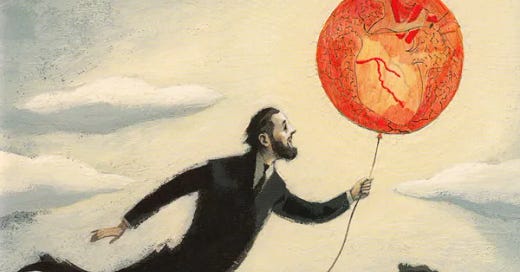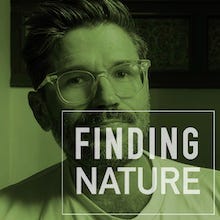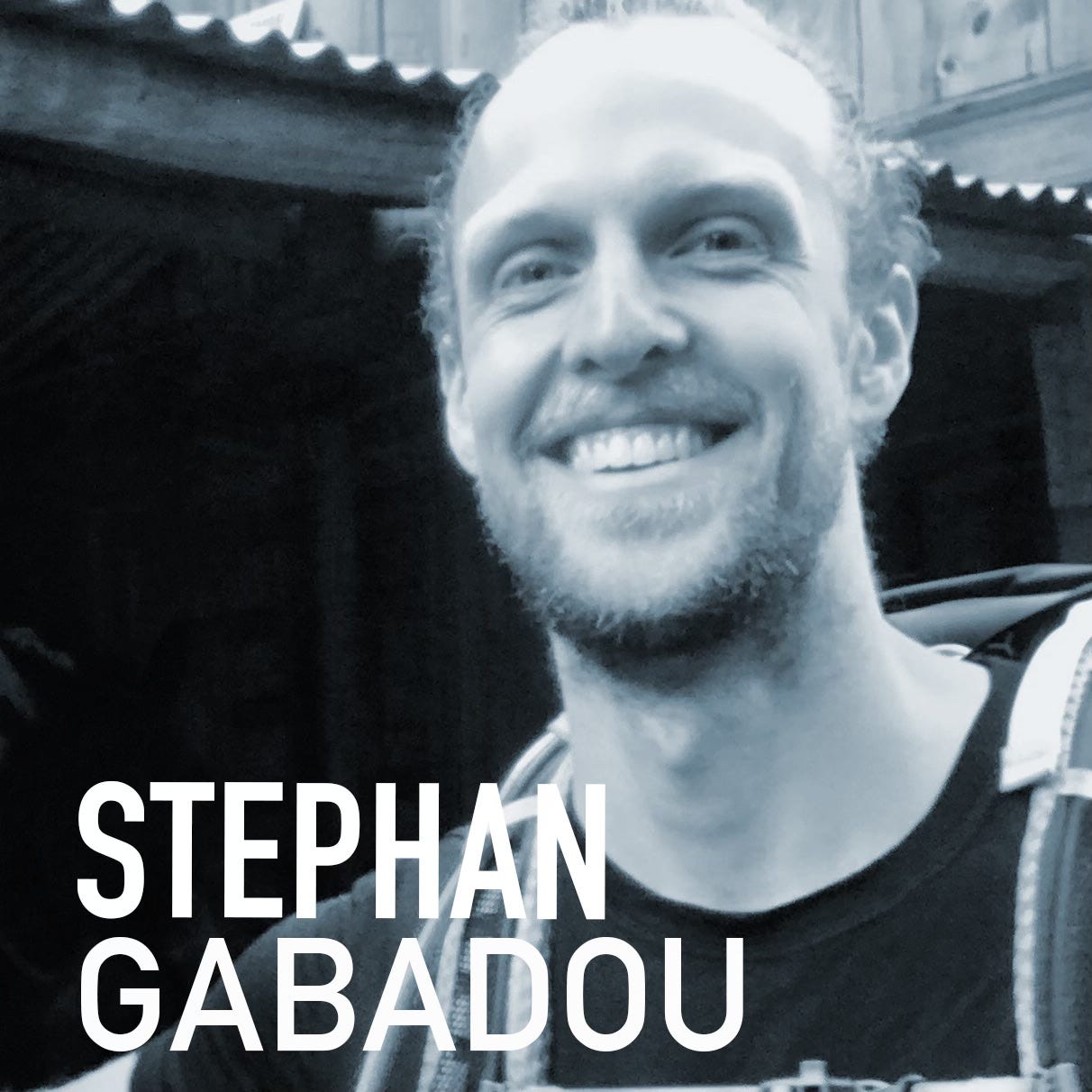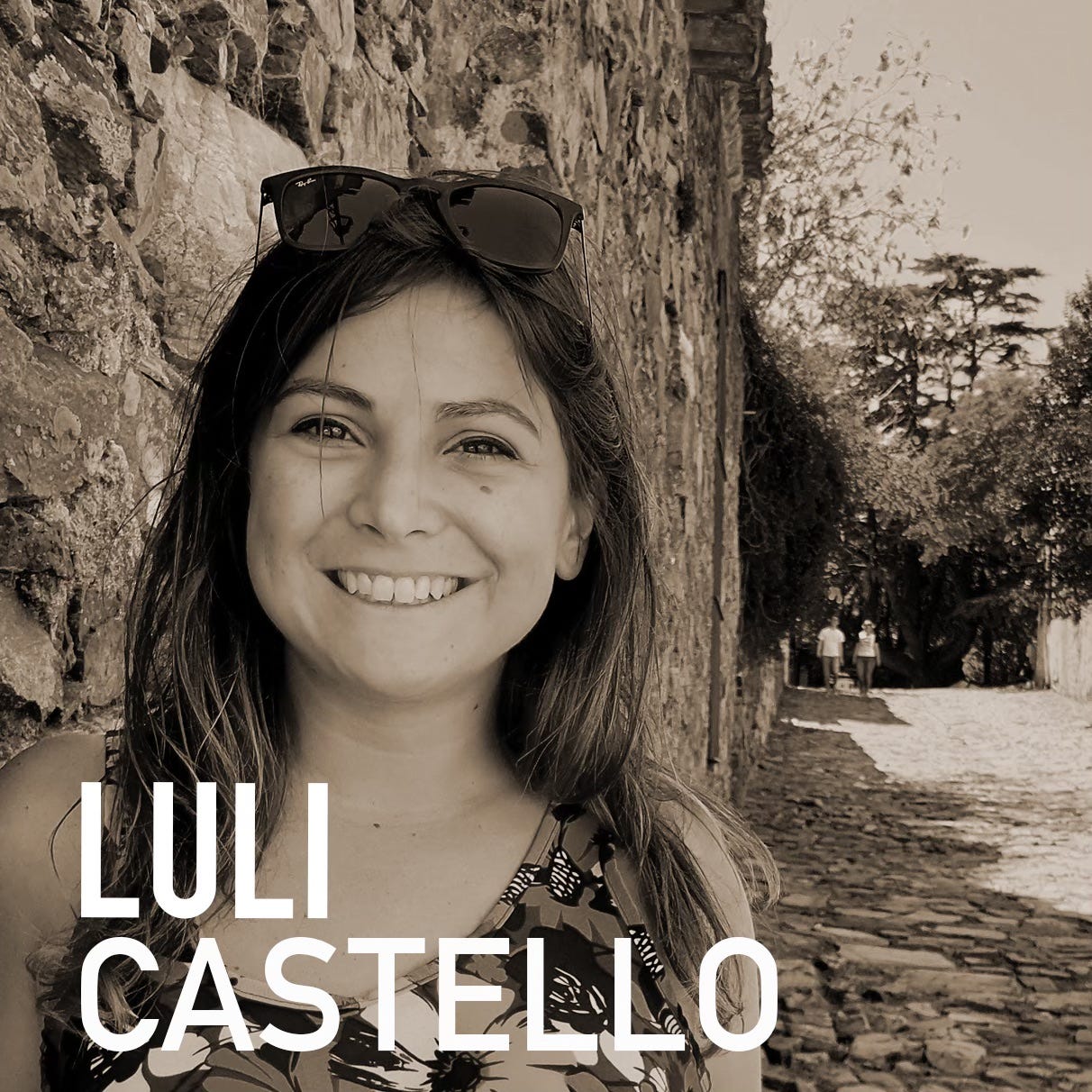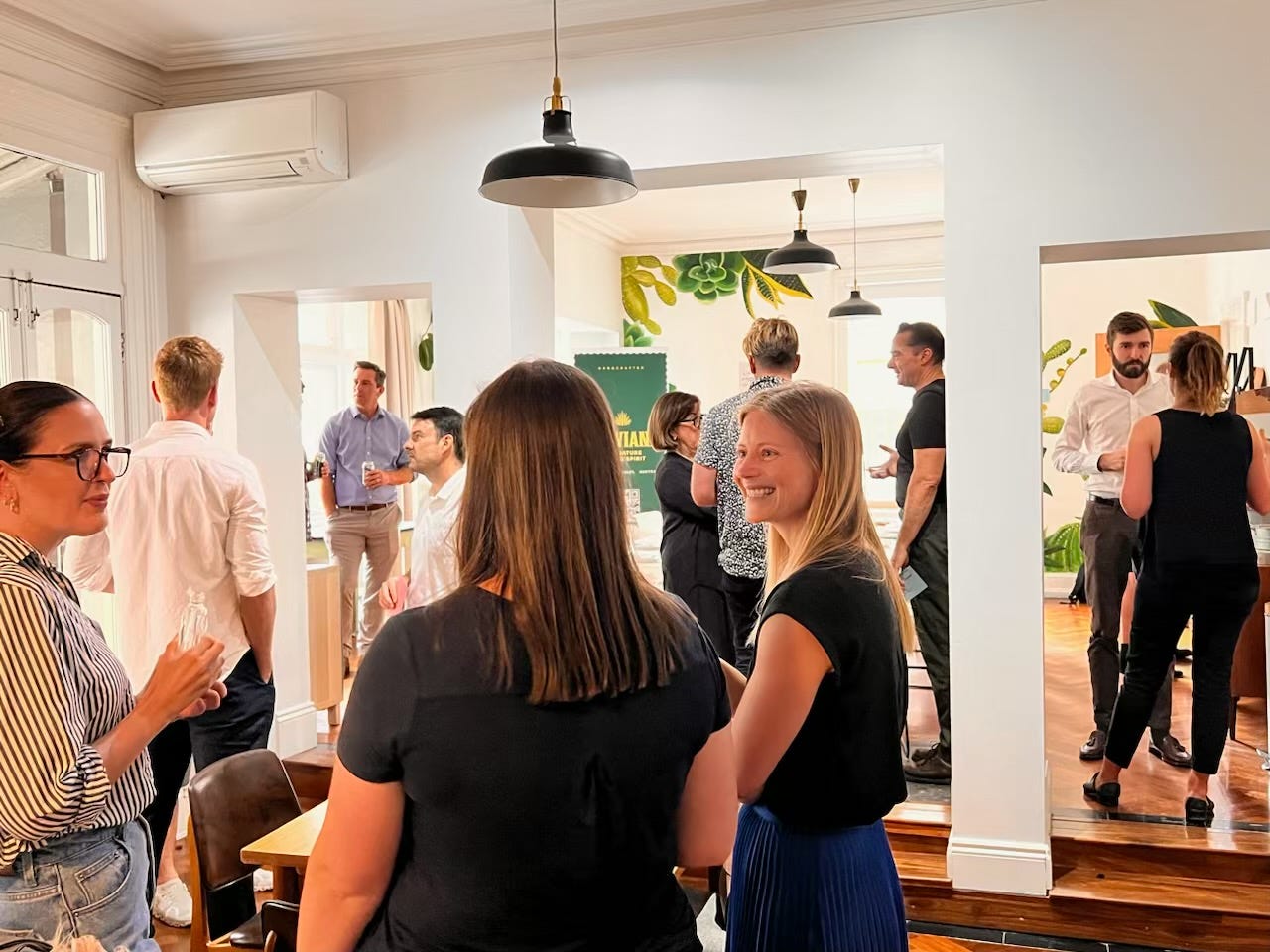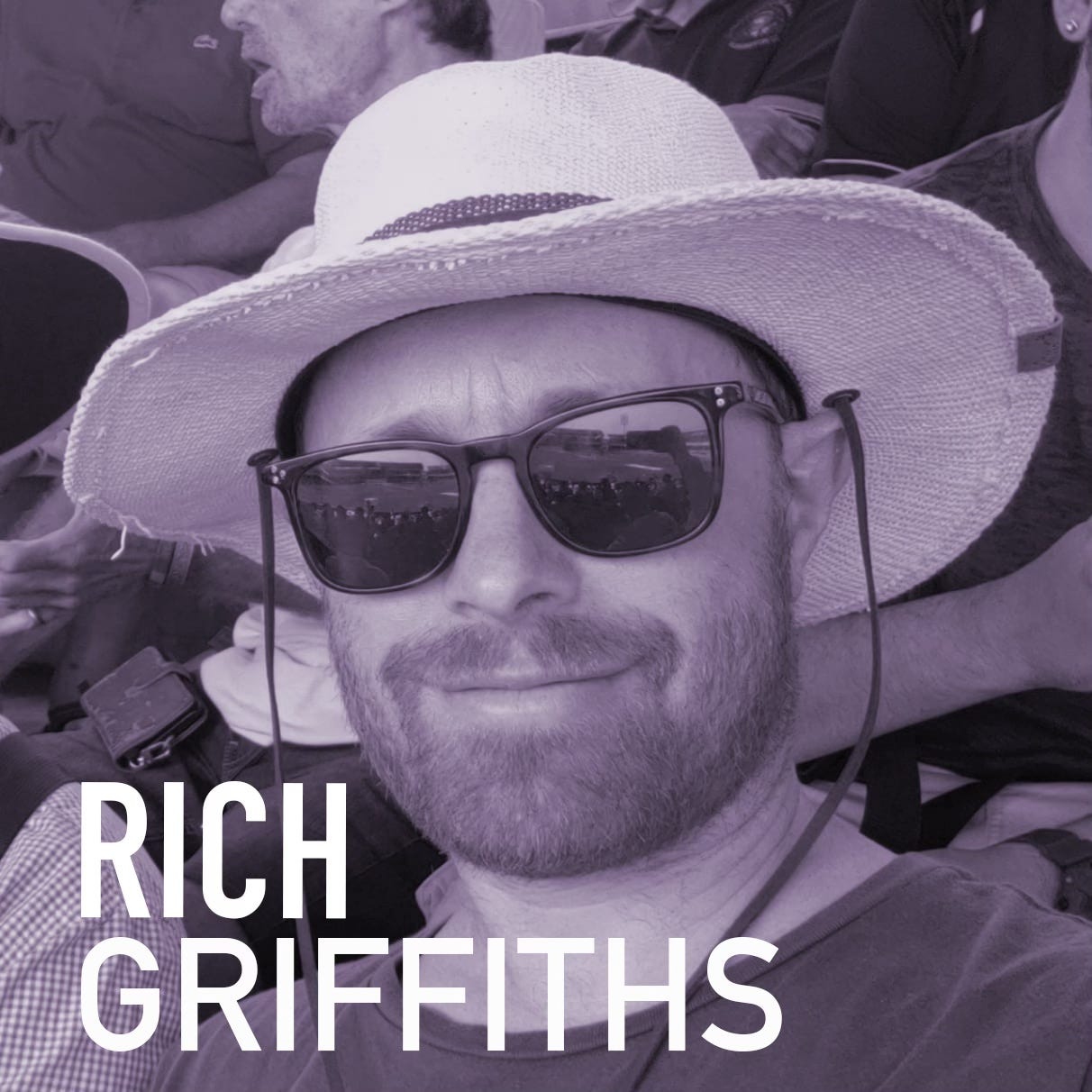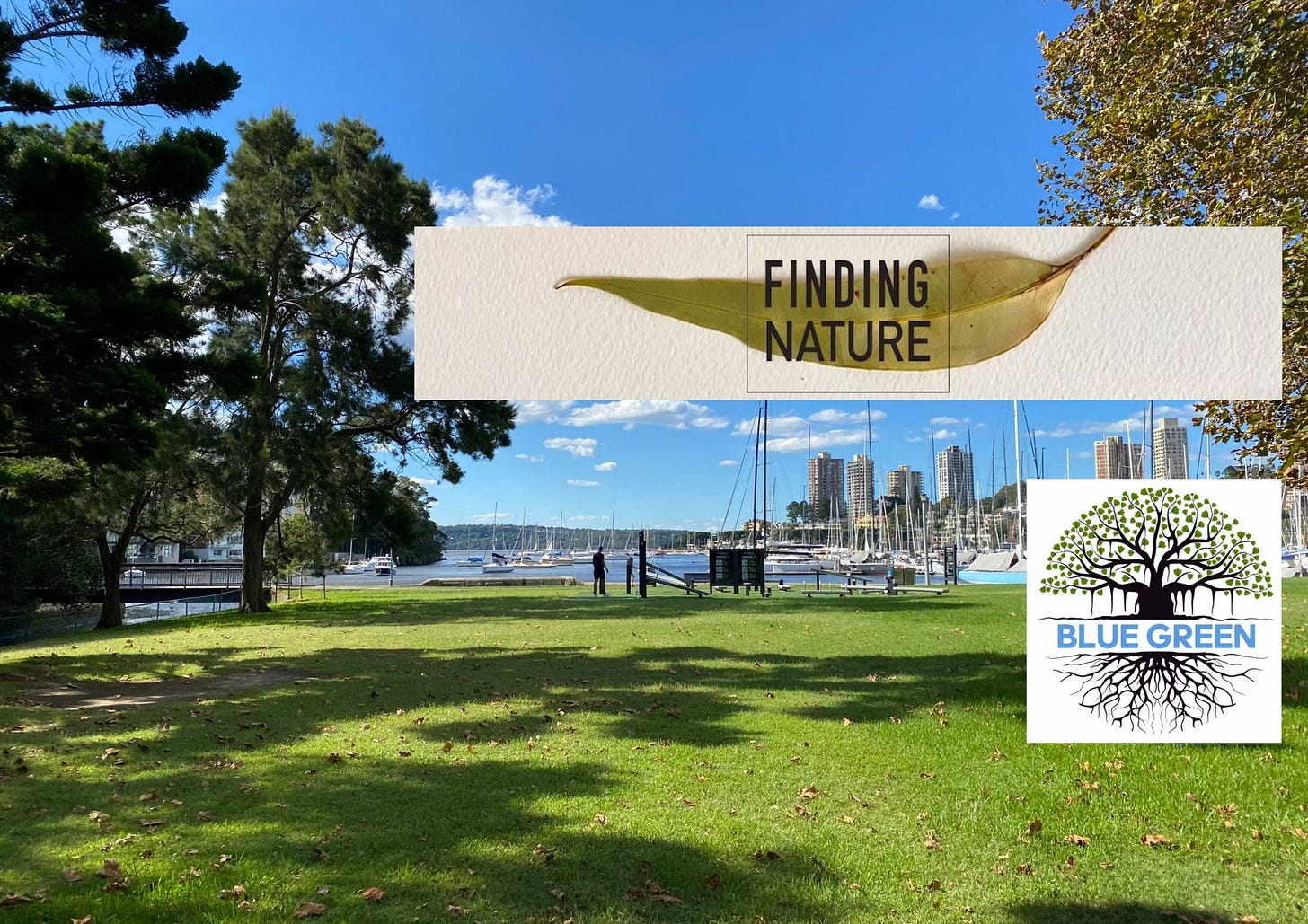Against All Odds
Where to? War? Fascism? Climate disaster? Despite the best efforts of the seemingly impenetrable existing dynamics of power, change is brewing. However, hope is a force of resistance and advancement.
Despair has been close by for me recently. Regularly and consistently.
Away from bureaucratic duties, the remainder of my days are filled with understanding the physical impacts of climate change and how they pose risks to financial systems. That is, who and what is in harms way and how to attempt to calculate how much loss and damage is coming. The how much is what is up for grabs. Not that it won’t. It will. The change in climate has, is and will continue to bring anxiety, uncertainty, danger, threat, harm, chaos, crisis, disaster and calamity for many here and around the world both human and non-human.
The news is full of heartbreak and contempt, fear and malicious intent. Warnings about my public posts continue as I exit a state of bare-serenity, go straight through sanity and land right in outrage. A lot of cowardly decisions by those in power of late have been piling up. A lot of vested interests have been getting their way. All while emissions keep rising. All while “We are on the brink of an irreversible climate disaster. This is a global emergency beyond any doubt. Much of the very fabric of life on Earth is imperiled. We are stepping into a critical and unpredictable new phase of the climate crisis.”
As the heat has risen in Sydney this week I am reminded of the catastrophe of fire from 2019/20. The loss and damage of that period I still struggle to process. They happened, they devastated, they seemed to instigate some zeitgeist shift. Then they didn’t. They were a message from the future. They’re coming back.
The inevitability is where my despair lives.
Maybe this is where hope begins though. In the desperation of surrender. In the breaking of any resistance to honesty. Only when reality is truly laid bare, in all of its brutality and discomfort and with the pain of shattering the delusion can alternatives be truly reckoned with. A real dilemma emerges - to return to what was and exist once again in a state of wishful thinking that power will be ceded and political targets will suddenly be met, or to face the immensity of what is needed, what is different and what is untested?
What if the discovery of true hope was only preceded by truly accepting despair, accepting pain, accepting loss and damage, accepting disappointment? To truly, honestly, accept reality.
Hope sits past wishful thinking. A force that is seemingly unending - especially for the change making sustainability and impact focussed professionals. We have seen the problems and we can no longer look away. The line between hope and hopelessness can feel like a thin and perilous ones at times. Archbishop Tutu described himself as a ‘prisoner of hope’, something I can relate to in my own way. Hope is always on though, maybe only just flickering at times and severely diminished, but as a source of internal strength it recuperates and can return to a brilliant flame.
I find hope in the experiences of belonging and unity I’ve discovered with the like minded and like hearted people that have built me back in 2024. I was demoralised - a bed of barely-burning embers. Kindling has been added progressively. One Finding Nature experience, then another, a launch, a pod recording where I received the wisdom of those ahead of me, then more of them. Newsletters where I have been privileged to help others tell the beauty of their stories. With each event or episode or newsletter another block of wood has been added to my fire, helping it to burn a little brighter, with a bit more intensity, growing in strength. Jane Goodall describes hope as contagious. I have experienced that this year. I have been exposed to the hope and trust and vulnerability of thousands of people. As a result, I have caught it and now I have the honour and duty to carry that forward, to offer it to others as they struggle through their own despondency and grief.
The tasks ahead are staggering. The magnitude intimidating. The science of hope sets out four clear stages; goals, pathways, confidence and support. In this cycle lies the kernel of possibility, of discovering the signal to move towards, to realise that hope is a force, an aura, a spirit that may at times feel distant but can be activated.
From honesty, to hope and into faith. This path is not for the feint of heart. What other path is there though?
Hope Doesn’t Exist in A Vacuum - Stephan Gabadou Cultivates Its Ingredients
Steps Is One of The Greatest People I Have Met. Entering my life in 2016, we have worked together as comrades in the four blue boxes and yellow diamond for almost that entire time, traveled to Nepal, hiked, shared a small tent, collapsed, become fathers and ultra’d. He grounds and challenges me, loves and serves. Everyone needs a friend like him in the Age of Don’t Look Up.
Like many things in life, hope has and continues to be something which provides me with a sense of inspiration, drive and unity. However, it can also instil fear and can leave me feeling a sense of vulnerability. Barack Obama's book title, 'The Audacity of Hope', strikes a nerve as to what hope is and can be. Audacity is a willingness to be bold, to show courage and a readiness to risk the comforts of the present for a potentially better tomorrow. To have hope means you believe in something, that you're invested in some future outcome which is different or better than today's reality. Hope is...
Shared. Hope is best when shared. Invited in or cultivated through community, companionship and shared dreams. For many reasons I've often struggled to ask for help. Growing up it always felt too risky, easy to perceive as failure or weakness and inconvenient. It meant not fitting in or feeling different. As the years have gone by I've had the privilege to share in others' lives and experienced the power of openness, trust and vulnerability. There's something raw, humbling and human about sharing something in an appropriate way that's deeply personal with someone you trust. In that instant, audaciously risking rejection, you hope to build or enhance your shared lived experience with and through that interpersonal connection. The single brave act brings people, teams and communities together in the hope we can see each other as we truly are in all our faults and still be loved.
Inspiration. Hope can be incredibly powerful. Perhaps even a superpower. In Man's Search for Meaning, Viktor Frankl recounts how hope might be the only factor which keeps us alive, that moves us forward, even just getting up in the morning or showing up for those around us. At times it offers a light for us through periods of deep suffering. However, hope is not often enough by itself. Hope is usually passive, more like a perspective or a baseline state of being. To realise a dream requires us to act, to choose and to connect with others. Sometimes hope is a visceral feeling of energised inspiration and sometimes it fades away. Sometimes you have it, sometimes you don't. But it can also - must also - be a choice - especially for those who have the moral courage to do what they feel is right or resist what is often just too easy. This resonates strongest with me when I consider my children and the world they will inherit. However I feel hope inspires actions in more mundane everyday ways too. We exercise because we hope to be strong and healthy. We eat well because we hope to live a life of greater longevity and vitality. We travel because we want to feel the richness of life and have something to look forward to enjoying.
Vulnerability. Having hope requires an acknowledgement to yourself and others that you care. That you want this or that. That you're willing to put yourself out there, to expose yourself in some way to achieve something you cannot be sure will happen. Wanting something and striving for it also means you have something to lose. Something can be taken from you, if you let it be so. You risk being burned. In many ways, it's the experience of life - putting yourself in the arena. That simultaneously both thrills and terrifies me. It terrifies me because it means leaving myself vulnerable to criticism, to not being liked, to not being able to please everyone at all times - fear of rejection and the often physical pain of shame. It thrills because it can give life meaning, requires integrity, develops self-worth, fosters community and supports connection.
Fortitude. If not hope, what's the alternative? The alternative might be to despair. To do nothing. I'll be the first to admit that I've fallen down those thought spirals many times, but I cannot live that way - or maybe I'm just too stubborn to do so. In my experience, hope can also be manufactured. It can be given to others and received from close friends, colleagues or family. It can be listened to or read or take the form of a video or musical composition. Hope has often just been an appreciation of beauty in something or someone.
Distraction. I struggle with the balance between being more present and looking to the future, planning for success and achieving those goals I hope to achieve. The wisdom of great teachers and mindfulness found in the present moment, compared to hoping for a better life which equates to thinking about a time that is not now. My children teach me that I need to work on being more present. I practice meditation in the hope of maybe one day finding a greater sense of inner peace from the ever present mind chatter. I journal for the same reasons and hope that one day I'll be cured of my own craziness. However both of these are directly opposed to our realities - there is only now. Is hope therefore helping or hindering our own journeys of self-realisation?
In a time of so much uncertainty, sometimes the only choice is to lead with hope.
An Actual End of Year Party - Finding Nature in 2024
18 December, 6pm, Chippendale.
Need something to end the work year on a high? Attending lots of obligatory professional calendar bookings to celebrate another 365 days on this spinning rock in December?
Finding Nature has you covered.
Head here to get more info plus your ticket.
We're throwing a party. And not just any party. And not just another end of year party. An actual party. One you want to go to. One where you will have fun. One where you will do more than chat work, network, lament, share job titles and watch the clock.
Plus we have giveaways! Simply by coming on the night you go into the draw to win prizes like a ticket to every Finding Nature event in Sydney in 2025, a stay at Gilay Estate, free subscriptions to Altiorem & more to be announced.
Don’t wait - collect up some others, get your tickets and see you at what will be the most memorable end of year celebration in town.
Towards The Light - Luli Castello Moves To Where Her Music Is
We all know the experience of meeting someone who brings vitality and vibrancy to wherever they go. Luli is one of those people. A regular of the Finding Nature event scene this year, she’s ridden the ups and downs of what life can throw at any of us in 2024. Despite that, she carries on with grace and commitment.
"I choose to believe." A phrase that became extremely popular in Argentina as the national football team chased the 2022 FIFA World Cup 36 years after our country’s last victory. It's cliché yes, but it reflects what I think is a truth: hope is a choice.
Hope can seem fragile. There is always a little thread to hold onto though. We will only fall if we let go. Life can really suck at times and keeping hope isn’t always easy. I’m neither a hypocrite nor a stranger to that feeling. We’re allowed to cry, to release all the frustration. Those moments matter and they’re necessary. But if you stay stuck in that feeling, where is it going to lead you?
If the news is depressing, politicians disappoint you and your footy team only appears in the news because a player cheated on their partner, it might be time to spend your precious attention and energy on something more fulfilling to re-spark your hope.
I’ve always been the environmental warrior of my group of friends and family. I knew I had to do something related to it when I grew up, but I was born in a country where priorities were far from environmentally conscious at the time when I had to choose a career. So I left everything behind and set off on my own, chasing opportunities that I knew were not easy to find if I stayed with my at home, hoping for new paths and possibilities.
My father was my first and greatest example of hope in action. When I was 11, my mother (the love of his life) passed away. My dad, now a single parent, never let us feel like life had to stop because of tragedy. Instead, he showed us what resilience looks like. With a smile on his face he supported my dreams, encouraged my wildest ideas, and showed me that even in the darkest times, there’s always something to hold onto.
It might be because of that that I tend to have a ‘glass half full’ view of life. I remember a friend telling me she might cancel her holiday trip overseas because of something new called Covid, I said “Pff don’t worry, it’ll be handled in no time”. I don’t need to explain how that story ended. So when those harsh truths hit home and I have no choice but to accept that things can end up on the glass half empty side, that’s when I find it vital to rely on my surrounding community - friends, family, mentors, role models - to re-spark that hope. Their support and encouragement has helped to keep me afloat when the weight of personal and world pressures, including environmental anxiety, have become too much.
When I found an opportunity to work in the world of green infrastructure I thought my career was sorted. Everything had fallen into place. A dream job combining my construction experience with nature, a team I loved who fully passed the ‘I’d have a beer with every one of you’ test, and holding the perfect work-life balance while feeling like I was making a difference in the search for greener cities. All of that disappeared overnight when the company went into liquidation.
After a couple of weeks of couch-sulking and feeling frustrated about the lack of education and enforcement around urban green infrastructure, the only thing I could do to keep the hope alive was to take action. I decided to nominate myself to be part of the Australasian Green Infrastructure Network committee as a volunteer, and I have to say, it kept my head in the right place while dealing with the feelings and thoughts of losing my job.
Volunteering for a cause I was passionate about was key for getting me out of a hole of frustration dug by vibe killers (the Trumps, Mileis and Murdochs of the world in my case). Working alongside other people who choose to offer their much treasured ‘spare’ time and that share your values is not only inspiring but also helped me step out of being the Sandy Olsson character and not feel so hopelessly devoted anymore.
Hope isn’t just something I find, it’s something I nurture. Surrounding myself with people who inspire me is essential. If that doesn’t come naturally from the cards you were dealt in life, find your crew, the ones who remind you why the fight or the effort matters, who energise and challenge you. I am lucky to be part of a group of Latin professionals in sustainability that became a safety net when it comes to the inspiration and hope we need in this industry.
Living half the world away from home is already hard, building a career around a cause you are passionate about, in a culture that is not yours and in a language that is not your mother tongue is even more challenging. But this group is the biggest kindle I could have to keep my environmental and community hopes alive.
On an alternative track to find hope, I lean a lot on music, especially live gigs. It’s in the voices of artists who care deeply and the collective energy of crowds that gather to hear them. Just last week, at Pearl Jam’s concert in Sydney, Eddie Vedder said: "It’s tricky times back at home right now, but we’re going to be okay." Same here Eddie… Same…
The world is going through very weird times, and such a simple line resonated. That’s the power of hope—it spreads, it connects, it fuels.
Returning to the Argentinian football team, and their leader Lionel Messi, considered the best player in the world and record holder of the most Ballon d'Or Awards. He hadn’t succeeded in helping to deliver a championship title with the national team for years. In 2016 he declared "The national team is over for me. I've done all I can."
However, even though there were a tonne of critics asking him to drop the national shirt, the voices from those hopeful supporters and teammates were stronger. He accepted that energy and the rest was Victory, sorry I mean History… winning consecutive titles with the national team at the Copa America (twice), Finalissima, and the 2022 FIFA World Cup.
So I choose to believe, by holding tight to my little thread and by surrounding myself with a lot of other threads that create a stronger rope of hope.
Ego to Eco - Evolution, Perspectives and Passion For Positive Futures
5th December, 6pm, Surry Hills
Communicating priorities around nature presents a profound philosophical challenge. These include seeing nature as a provider for people through ecosystem services, or as a resource fuelling economic growth. Others view it through a more personal lens, emphasizing connection and emotional ties to the natural world. Additionally, some philosophies position people as part of nature—interconnected and inseparable, as in First Nations relationships with nature. Others champion nature as a moral imperative, upheld by spiritual or religious traditions, while some advocate for nature's intrinsic value—life-supporting and deserving of rights beyond human benefit. Recognizing these diverse worldviews is crucial to creating more inclusive and effective strategies.
This evening will delve into the foundations of nature sustainability and how we can realize our impact on building a positive future. We will explore key concepts such as ego to eco, yin and yang, hope and fear, and short- versus long-term prioritisation, examining how these perspectives shape our current and future states.
This is the last supper club night of 2024 - head here.
Remaining Hopeful When Relinquishing It Would Be Unbearable - Rich Griffiths Is a Man Reborn
Just about everybody knows or has heard of Rich. A Brit on the Northern Beaches who’s been living the hopeful life of consulting on big ideas, encouraging rational considerations and the obvious utopia of integrating long term impact consideration into short term and myopic decision making. Released, he is discovering what could be possible.
Some of the headlines over the last few weeks and months have been pretty bleak if you, like me (and if you’re reading this, you probably are) a sustainability-minded person. The President Elect in the US continues to remind us of his aim to “drill baby, drill”, while the President of Azerbaijan, Ilham Aliyev, described fossil fuels as a “gift from God” - at the opening of COP29 that his country was hosting no less. No surprise, then, that the latest climate COP has been widely described as a failure, coming hot on the heels of a biodiversity summit characterised by “disarray and indecision”.
These gut punches come against a backdrop that we’re all all-too-familiar with. We’re rapidly approaching, if not already exceeding, a global average temperature increase of 1.5C, and are on track for 2.7C or more. Biodiversity is being lost at a staggering rate, with a decline of almost 70% in wildlife populations since the 1970s.
How, as sustainability professionals, do we maintain hope? How do we show up every day and continue to do what we do; fighting our own (often equally uphill) micro-battles, knowing that all around us, the macro currents are also pushing inexorably against us?
Personally, I can’t run from the fact that it’s getting harder and more difficult. Starting out my career back in the early 2000s, it was easy to feel optimistic: the energy of youth combined with a degree of naivety. But 20 years ago we had what, at that moment, felt like a plentiful commodity: time. Today, I’m older… more battle weary… and I can hear the clock ticking more loudly than ever before.
But I continue to do what I do. We all do. Why?
Personally, I often find myself drawing – probably unjustifiably – parallels to find hope in my darker moments. Only a little under five years ago we were faced with a global pandemic that felt like a genuine threat to humanity. In response, we unleashed trillions of dollars in research, the rollout of treatments and other health measures, and in economic stimulus programs. Surely, my subconscious argues, we can tackle the myriad of environmental disasters we face, and we can do so very quickly, if we just put our minds to it and re-discover the collective intent of that moment.
At times, some important trends seem to support that feeling. Earlier this week I read news suggesting China’s emissions would peak this year or next. In The Renewables 2024 report, released by the IEA in October, we learned that the world is set to add more than 5500 gigawatts of new renewable energy capacity between 2024 and 2030, tripling the rate of increase seen between 2017 and 2023. Yes, some horrifying climate and nature tipping points are rapidly approaching, but so too are of the economic tipping points that may avert (or at least mitigate) those crises.
More recently I’ve found myself in a new world by hanging around in sustainability startup and investing circles. If you need a dose of optimism these are wonderful places to be. Not just because you hear about innovative new businesses that might - just might - shift the dial (I recently had my mind blown by an entrepreneur on a pathway to outcompeting petrochemicals on price with algae-based technology), but because it’s a space that is inherently hopeful. Founders of these businesses are in the game precisely because they think they have new solutions that can replace the old.
Alongside these facts there is something more intrinsic; a degree of blind inner faith that I just have to hold onto. It took me a long time – much to my wife’s annoyance – to decide if I could justify having kids. It’s a decision that I still debate to this day. Now having made my choice I am faced with the reality that I have no alternative but to be hopeful. I owe it to them to cling on, pushing wherever I can to make a difference, and to assure them that there are solutions we can work towards.
I think it helps being a football (soccer for you heathens) fan. If there’s one thing the beautiful game has given me, it’s an ability to hold on to the slightest and most irrational glimmer of hope. I’ve jumped and shouted with joy too many times, celebrating an injury-time comeback, to really allow myself to ever believe that all is lost until the final whistle is blown.
Having just finished up after eight years in corporate sustainability consulting I feel a bit like I’ve come into the dressing room at half time, 3-0 down to the league leaders, knowing that we need a win to stay in the title race. I’m exhausted and a little disheartened. But I look around and I see teammates that are talented, motivated and have the same result in mind. So I’m going to take a breath, drink some Gatorade and march back out for the second half.
We may not win in the end. But I’ll be damned if I don’t get to the final whistle knowing I gave it my best shot.
Finding Nature Finds (Blue Green) Nature at Yarranabbe
7th December, 9am, Yarranabbe (Rushcutters Bay)
Time to get to (urban) nature again. On the first Saturday of each new season, Finding Nature Finds Nature. This time, at the iconic Yarranabbe (Rushcutters Bay).
This time round we will be hearing from Colin Finn as he helps us to imagine the lost and degraded landscape that is Yarranabbe and what is possible if we reprise First Nations knowledge systems, adopt logical economic and planning decisions (oh, the utopia!) and make science based climate impact decisions.
Colin has been spearheading work in and around Sydney Harbour in an effort to help Sydneysiders realise the critical value and burning platforms that two centuries of industrialisation, inequality and injustice have created along Sydney's harbour foreshore. At Yarranabbe, Colin is working with community members, experts and First Nations leaders to end the degradation of this spot and help to realise a more just, safe, rational and beautiful future.
When All Is Said and Done - Trust in Love is The Transcendent Hope Catherine Kerr Hold On To
Catherine Kerr attempts what may be the hardest of all change making for the betterment tasks imaginable - adapting our civilisation and society to the arrived climate crisis. Somehow though she navigates through the despair to maintain an optimism we can all access.
This contribution is slightly different. Catherine had the honour to offer the opening and closing remarks at the recent AdaptNSW 2024 conference. All about the impacts of climate change, the loss and damage already caused and what is coming down the line, the conference offered a different vibe to the usual sustainability blah blah.
Opening Address
Just last month Hurricane Milton, with the power of 10,000 Hiroshima-sized atomic bombs spiralled, quite literally, into mainland Florida.
Meteorologists tracking the advance of the Hurricane were then targeted by a deluge of conspiracy theories that they were controlling the weather. Abuse, death threats.
“Yes they can control the weather,” Marjorie Taylor Greene, a far-right congresswoman, wrote on X. “It’s ridiculous for anyone to lie and say it can’t be done.”
A few days later – SpaceX was able to launch its Starship, then caught its Super Heavy booster back on the launch pad. All I could think about was how much closer the first Mars voyage may now be, even though we already have our own perfect planet, of which we have evolved.
Chaos. Complete and utter chaos.
In 1963, Edward Lorenz stumbled upon chaos theory by accident while trying to predict the weather. A rounding error in his calculations caused an exponential shift in results. From this, he gave us the metaphor of the butterfly effect: a butterfly flapping its wings in Brazil could set off a tornado in Texas, reminding us how fragile and unpredictable our world truly is.
The paradox of chaos theory lies in its combination of order and unpredictability. At its core, chaos theory deals with deterministic, Newtonian systems—those governed by specific, well-defined rules—yet the outcomes of these systems can appear completely random and unpredictable. Order within the chaos.
Chaos theory isn’t just a concept—it’s woven into the fabric of the universe.
Fractals are seen in the spirals of plants, forking riverways, lightning across the sky. They are the patterns of chaos, revealing the balance of order and unpredictability.
The aurora occurs when charged particles from the sun collide with Earth's magnetic field and atmosphere, producing vibrant, ever-changing displays of light. Small changes in solar activity or magnetic field fluctuations can lead to vastly different auroral displays. Unpredictable and untamed beauty.
We, too, are creatures of chaos. Our hearts beat to rhythms that change in response to our emotions, our brains spark with thoughts and connections beyond predictability. Like the universe, our bodies are sensitive to the smallest shifts, responding with nonlinear feedback loops that govern our very survival.
Chaos theory flows through human society as well. Our cultures, economies, and political systems may appear stable, but beneath the surface, they are just as sensitive to the principles of sensitivity, unpredictability, and emergence as natural chaotic systems. A single action, a new idea, or even a conversation can ripple outwards, reshaping the very world around us.
I invite you to take this understanding into your journey over the next two days. Each pathway that you take, as you choose your workshops and sessions, the intersections you have with each other is part of this vast, evolving system. Our actions can ripple through time and space, influencing the future in ways we can't yet imagine.
Closing Address
In a fraction of a second, infinite energy burst into existence, setting the universe in motion. A trillionth of a second faster and the universe would have spun out into nothingness; a trillionth of a second slower, and it would have collapsed back on itself.
Instead, the Big Bang, 13.8 billion years ago, began a process that is still unfolding today—one of increasing complexity and growth.
From the primordial soup, life emerged, shaped by forces like natural selection, self-organization, and feedback loops. These forces drive evolution, emergence - leading to greater complexity over time.
But they are constantly balanced against entropy, the tendency of isolated systems to move to disorder over time, resulting in the dissipation of energy and the breakdown of organized structures. The natural pull toward disorder.
Despite this, life has found a way to maintain and even increase its order, exchanging energy and ideas, adapting to survive and thrive. This dynamic tension between creation and decay is fundamental to the way the universe works.
Then, with the development of a mind complex enough to reflect on its own existence, roughly 100,000 years ago, humanity gained the power to influence the path of creation through thought and action. Human consciousness emerged.
But even now, similarities can be drawn between two opposing forces: entropy, which pulls us toward disconnection, greed, and isolation, and emergence, where collaboration and care drive us forward, shaping new patterns of growth. Both, in a never-ending dance.
In Emergent Strategy, author Adrienne Maree brown writes: “In a fractal conception, I am a cell-sized unit of the human organism, and I have to use my life to leverage a shift in the system by how I am, as much as with the things I do. This means actually being in my life, and it means bringing my values into my daily decision making. Each day should be lived on purpose.”
Perhaps the answer lies not in resisting the chaos, but in embracing it. By acknowledging the unpredictable, we can consciously come together to create new patterns, to listen to the signals of the natural world, to allow what does not serve our evolution to decay, to fall to entropy, so that we can emerge and adapt.
As Grace Vegesana at last year’s forum said, “Adaptation is love.” And to quote Dr. Brand in Interstellar, "Love is the one thing we're capable of perceiving that transcends dimensions of time and space. Maybe we should trust that, even if we can't fully understand it."
Podcast
What a month of guests. Truly a privilege and an experience in being exposed to remarkable wisdom. Every episode is a gift.
Dr Vanessa Pirotta is Forging New Paths: Humpbacks, Drones and Creating What Doesn't Exist
The Voice of A Community: Nicolette Boele on Local Politics, Local Change and the Potential For A Real Shift
Tammi Miller Will See You Now: Work Addiction, Identity and The Perils of Pursuing It All
Climate Councillor Lesley Hughes on the Race To Catastrophe and The Power of Unity
Support!
Finding Nature works with several organisations to deliver our content and experiences. If you’d like to learn more and expose your business or opportunity to our community, get in touch.
Altiorem is the world’s first sustainable finance library on a mission to change finance for good. Use the code FindingNature to get the first month off your membership.
Gilay Estate is a remarkable off-grid hut on the Liverpool Plains in NSW. Get to nature, get to Gilay Estate. Use the code Finding Nature at booking to receive a complimentary food bundle (free dinner & brekky) for every night you stay.

